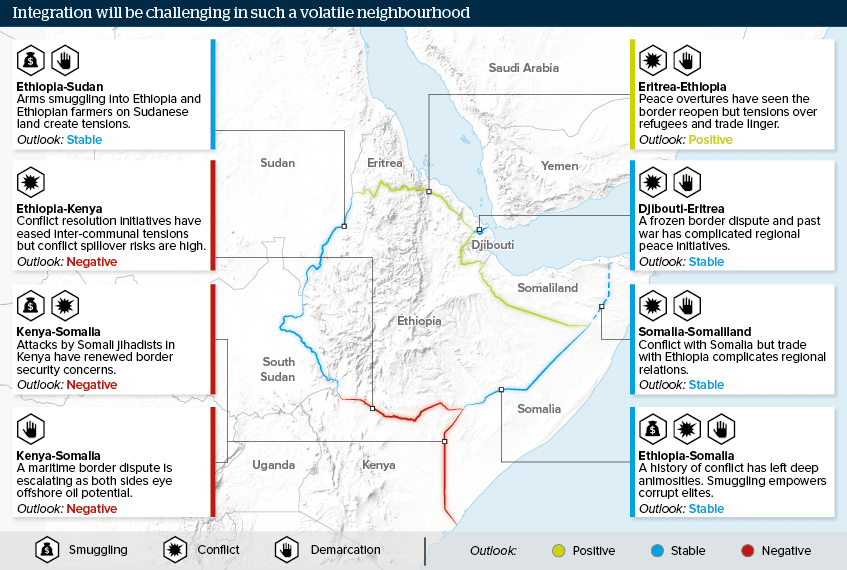East African borders will remain points of friction
Continental, regional and sub-regional integration initiatives are gaining currency but the challenges are significant
Source: Oxford Analytica, media sources
Outlook
In January, Ethiopian Prime Minister Abiy Ahmed reiterated his desire to replace the Horn of Africa’s fractious international relations with a process of full political and economic integration, building on progress in bilateral peace initiatives and a tripartite pact between Ethiopia, Eritrea and Somalia.
That regional states are even discussing this is a major development. However, full integration would have to overcome deep historical animosities, ethnic tensions, economic competition and political mistrust, suggesting the region’s borders will remain points of friction for some time to come.
Nevertheless, process may be as important as outcome; full integration may be unrealistic, but a narrative of regional solidarity creates space to deepen weak trade and political ties.
Impacts
- Ethiopia-Djibouti integration holds the most promise based on compatible interests, but Djibouti remained outside Abiy’s original scheme.
- Expanding the project to a wider group of states would multiply the political barriers to integration.
- Issues of sovereignty continue to occupy regional elites and populations, suggesting regional integration will face domestic resistance.
See also
- East African regional relations face a period of flux - Sep 8, 2021
- Djibouti deal may unlock East Africa peace puzzle - Sep 20, 2018
- More graphic analysis
